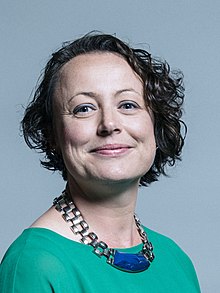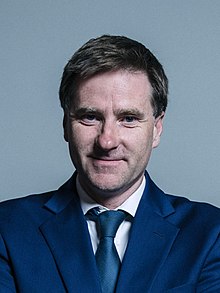MPs agree that childcare ratios should not be reduced
Dozens of MPs who spoke at a parliamentary debate about Government proposals to reduce ratios for two-year-olds agreed that it would benefit neither children or parents.
The debate was called in Westminster Hall following a petition by the parents of nine-month-old Oliver Steeper who died following a choking incident in a nursery last year. The petition called for the plans to reduce adult:child ratios to be scrapped. It received 109,000 signatures, leading to the debate.
Oliver’s parents Zoe and Lewis Steeper attended the debate and listened to the arguments from many MPs who mostly spoke about child safety, wellbeing, early education support and children’s outcomes. They also spoke about the lack of government investment which was hampering childcare providers and had led to a workforce crisis.

Cath McKinnell, MP for Newcastle upon Tyne North
MP for Newcastle upon Tyne North Cath McKinnell (Lab), Chair of Petitions Committee, gave the opening speech in which she said: “Stop thinking about childcare as a luxury – quality early education is a key determiner of children’s outcomes.”
She called ratio reform “a sticking plaster on a gaping wound in our childcare sector”.
She also questioned the £40 saving that the Department for Education had said parents would make on their fees if ratios were reduced.
Twickenham MP Munira Wilson (Lib Dem) said that all the evidence shows lower child to staff ratios improves outcomes and reduces the attainment gap while former shadow childcare minister Tulip Siddiq, MP for Hampstead and Kilburn (Lab) asked about the impact that reducing ratios would have on children’s mental health.
Tulip had searched “far and wide in preparation for this debate. “I couldn’t find one expert who thought they were a good idea.”
“Childcare is a vital social and economic infrastructure. It’s as important to our country as the roads, rail and our healthcare system,” she added.
Chair of the APPG for Childcare and Early Education Steve Brine, Conservative MP for Winchester, said: “Early years education and care should be seen in terms of quality, not just in terms of quantity.
“There are concerns among providers and parents about the capacity to support children with any additional needs who may need more rather than less time with these early years educators.

Steve Brine, Conservative MP for Winchester and Chair of the APPG for Childcare and Early Education
“The All-Party parliamentary Group is calling for, and has been calling for a while, a wholesale review of childcare and early education.”
Former Children’s Minister Vicky Ford, MP for Chelmsford (Cons) told the debate: “People want to have outstanding childcare. When looking at international comparisons you should look at staffing levels and investment of qualifications.”
NDNA’s Chief Executive Purnima Tanuku OBE said after the debate: “We need to pay tribute to Oliver Steeper’s parents, Zoe and Lewis, for their petition that led to this debate. MPs from across Parliament came together to highlight concerns about changes to ratios and the challenges the sector is facing in the current economic climate.
“The strong views of parents, providers and early years experts were clearly set out to the new Minister by MPs. NDNA’s research with nurseries was quoted along with providers’ experiences and views. While the Minister struck a listening tone, we now need to see that these views have been taken on board and the challenges are addressed.
“The early education and childcare system is not fit for purpose and needs urgent reform. This was highlighted in the debate. Any response must look at what is best for our children, address underfunding and the workforce crisis. The regulation needs to be part of wider reform and cannot be done as a cost cutting exercise.“
The new Minister for Children, Families and Wellbeing, Claire Coutinho, MP for East Surrey, listened to all the arguments and responded. She first paid tribute to Oliver Steeper’s parents and to all early years staff for the dedicated work they all do.
She told the debate that there was more to the consultation than just the two-year-old ratio but that the Government will take into account views from the consultation and from the debate.
The Minister said: “At the heart of this debate sits safety and quality and I want to assure everyone that will be integral to the proposals that we put forward. We are working with NHS, FSA and DHSE on raising awareness of choking.
“It’s right that the Government looks at this issue of ratios that were set out in the 1980s. We will also be looking at the impact. Safety has to be paramount in what we are trying to do. At the same time thinking about the affordability of childcare, looking at those flexibilities and how we can make staff feel their judgement is trusted are important as well.”
A spokesperson for the Department for Education said: “The welfare and safety of children remains a priority and we have consulted on the language used in the Early Years Foundation Stage framework to be explicit on the requirement for children to be adequately supervised whilst eating.
“We have also consulted on moving to the Scottish staff-to-child ratios, from 1:4 to 1:5 for two-year-olds, to give providers more flexibility in how they run their businesses while maintaining safety and quality of care. No decisions have been made yet, but we will set out our response shortly.”
Click here to view the petition
Click here to read the debate in full
- England
- Cath McKinnell
- Claire Coutinho
- DfE
- Munira Wilson
- Steve Brine
- Tulip Siddiq
- Vicky Ford
Similar Articles
Welsh parties focus on supporting children and families

Scotland’s parties focus on reducing child poverty

